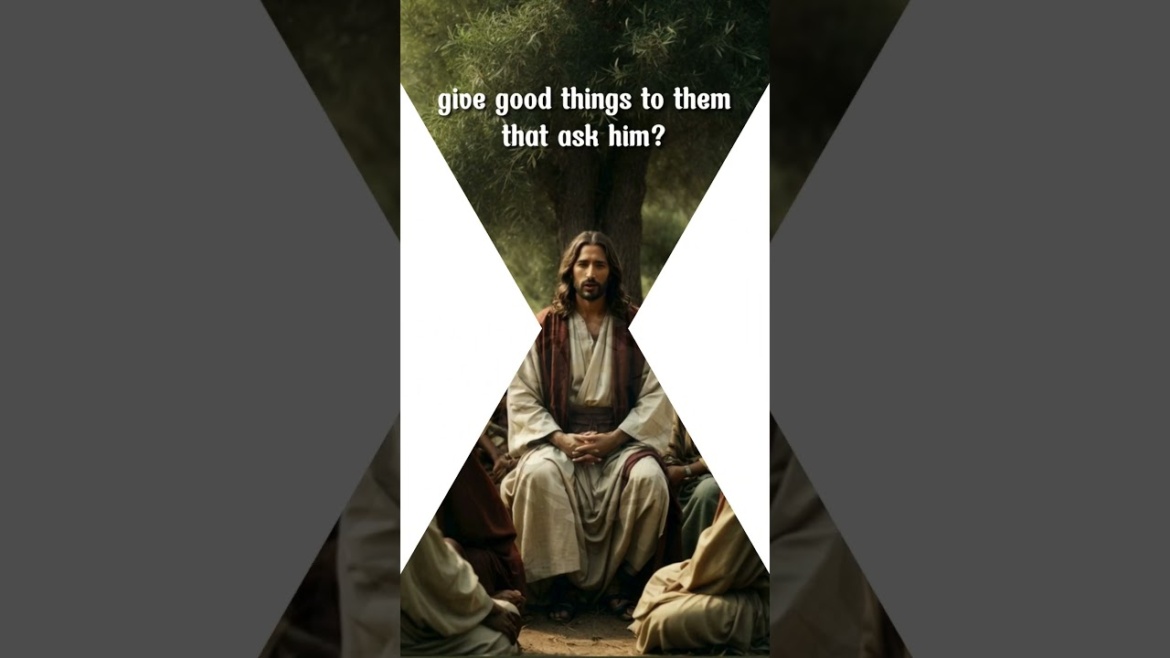The Significance of “Ask, and it shall be given you; seek, and ye shall find; knock, and it shall be opened unto you: For every one that asketh receiveth; and he that seeketh findeth; and to him that knocketh it shall be opened. Or what man is there of you, whom if his son ask bread, will he give him a stone? Or if he ask a fish, will he give him a serpent? If ye then, being evil, know how to give good gifts unto your children, how much more shall your Father which is in heaven give good things to them that ask him? Therefore all things whatsoever ye would that men should do to you, do ye even so to them: for this is the law and the prophets.”
The phrase “Ask, and it shall be given you; seek, and ye shall find; knock, and it shall be opened unto you: For every one that asketh receiveth; and he that seeketh findeth; and to him that knocketh it shall be opened. Or what man is there of you, whom if his son ask bread, will he give him a stone? Or if he ask a fish, will he give him a serpent? If ye then, being evil, know how to give good gifts unto your children, how much more shall your Father which is in heaven give good things to them that ask him? Therefore all things whatsoever ye would that men should do to you, do ye even so to them: for this is the law and the prophets.” is a powerful christian law used by Jesus in Matthew 7:7-12 from the Sermon on the Mount. It is part of a broader teaching by Jesus about prayer, as well as persevere in our faith, and is a meaningful reminder to focus on urging people to treat others as they would like to be treated. This connects prayer and faith to our actions in the world. It’s often interpreted within a religious context, its meaning remains clear and can be applied more broadly to personal growth and ethical living.
Context of the Phrase
The law appears within Jesus’ Sermon on the Mount, a collection of teachings focusing on right living and morality for spreading God’s message. It’s preceded by he focuses on the dangers of harsh judgment, self-righteousness and judging others harshly. He also warns them against the dangers of wrongly choosing the object of judgment. Jesus is now teaching his followers about prayer and faith. He emphasizes that God, like a good parent, wants to give good things to his children who ask. He also reminds them to focus on urging people to treat others as they would like to be treated.
Significance of the Phrase
The law is a cornerstone of Christian belief in the power of faith and persistence in prayer, it encourages believers to be persistent in their requests to God and to trust that he will provide for their needs. It is also a reminder with special meaning to focus on urging people to treat others as they would like to be treated, because this is a direct bridge for our faith and prayers to God’s ever-present source of blessings.
Here are some key points:
God’s Love: It emphasizes that God is loving and willing to provide for his children.
God’s Desire: It emphasizes that God desires a relationship with us and wants to give us good things.
God’s Bridge: It emphasizes that direct bridge for our faith and prayers to God’s ever-present source of blessings is the good things we have done to others.
Application of the Phrase
The law is a call for us to actively ask God for what we need and seek his guidance, this doesn’t guarantee we will receive everything we desire, but it demonstrates our trust and dependence on him. It also emphasizes perseverance, sometimes prayers aren’t answered immediately, but God may be working in ways we don’t understand. The illustration of a father giving good gifts to his children assures us that God desires to give us what is truly beneficial, even if it’s not what we initially ask for.
Here are some key points:
Prayer: It is a call to action for active prayer, it is not a guarantee that everything will be granted, but it emphasizes the importance of communication with God.
Persistence: Sometimes, answers to prayers take time and require continued faith, so we are encouraged to persistently seek God’s guidance.
Faith: The example of a father giving good gifts to his children emphasizes God’s desire to give us good things when we ask, and it shows faith in God’s goodness.
Key: The final verse introduces the Golden Key, urging us to treat others as we want to be treated, then ask for God’s help through prayer.
In summary, the law ends by introducing the Golden Key, urging us to treat others with the same kindness and respect we desire for ourselves, this connects our faith and prayers to God’s ever-present source of blessings. Finally it is a call to action: to pray persistently, to have faith in God’s goodness, and to live according to the Golden Key.
THE CHILD IS INTENDED INTO ONE SUB & NINE EXTREMES
« Samsara Extreme Of Heaven In Child Intended To Exist »
WHAT IS ✨ COLD CHILD SPACE? IT IS JUST CHILD EXTREME!
« Child Extreme’s Code & subExtreme’s Law »













